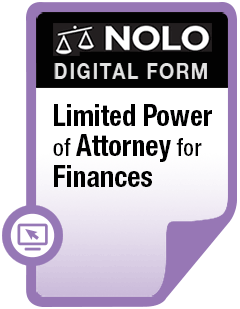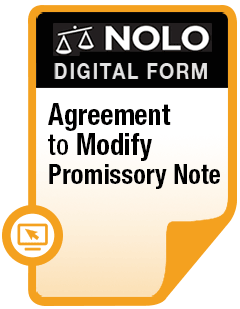If you get turned down for a loan or credit, the creditor must give you a notice explaining why.
The Equal Credit Opportunity Act (ECOA) (15 U.S.C. § 1691 and following (2025)) and the Fair Housing Act (FHA) (42 U.S.C. § 3601 and following) are the primary federal laws prohibiting credit discrimination. Under the ECOA, creditors and lenders can't deny loan applications or charge higher costs, like a greater interest rate or more fees, for discriminatory reasons. This law also requires creditors and lenders to give you an "adverse action notice" if you're denied credit or granted credit on terms different from what you requested. The FHA prohibits discrimination in residential real estate and mortgage transactions.
If a creditor or lender discriminates against you in violation of the ECOA or FHA, you can complain about the issue to the creditor or a government agency, or you may sue the creditor. Also, once you know the specific reasons for an adverse action, if nondiscriminatory, you can take action to improve your credit or correct inaccurate information in your credit files.
- What Is the Equal Credit Opportunity Act (ECOA)?
- What Is an "Adverse Action" Under the ECOA?
- Real Estate Transactions and the Fair Housing Act (FHA)
- Supreme Court Says Cities Can Sue Banks Over FHA Violations
- Other Laws You Can Use to Fight Lending Discrimination
- How to Identify Signs of Credit or Lending Discrimination
- What You Can Do About Credit or Lending Discrimination
- Talk to a Lawyer If You Think You're a Victim of Credit or Lending Discrimination
- Get More Information About Credit and Lending
What Is the Equal Credit Opportunity Act (ECOA)?
The ECOA and Regulation B (12 C.F.R. § 1002 and following (2025)), which implements the ECOA, prohibit discrimination in any part of most credit transactions, including applications for credit, credit evaluations, restrictions in granting credit (like requiring collateral or security deposits), credit terms, loan modifications, and collection procedures.
What Kinds of Discrimination Does the ECOA Protect Against?
The ECOA prohibits a creditor or lender from refusing to grant credit or taking another adverse action because of:
- race or color
- national origin
- sex (including gender)
- marital status
- religion
- age (if the applicant is old enough to enter into a contract)
- public assistance status, or
- because the applicant has exercised any right under the Consumer Credit Protection Act in good faith. (15 U.S.C. § 1691(a) (2025).)
So, a creditor or lender generally can't deny an applicant's loan application or take another adverse action for any of the reasons listed above.
When Does ECOA Apply?
The ECOA applies broadly to different kinds of loans, like auto loans, credit cards, mortgages, student loans, and small business loans.
What Is an Example of Credit Discrimination?
Say you're denied a mortgage loan because the home you want to buy is in a majority-minority neighborhood. That's lending discrimination. Also, charging Black or Latino customers a higher interest rate than other non-Black or non-Latino customers is a form of credit discrimination.
What Is an "Adverse Action" Under the ECOA?
Again, the ECOA requires creditors and lenders to provide a notice if an applicant is denied credit or granted credit on terms different from what they requested. This notice is called an "adverse action notice."
Under the ECOA, the definition of an "adverse action" includes:
- denying a credit application
- terminating an existing credit account
- making unfavorable changes to an existing account's terms and
- refusing to increase a credit limit. (12 C.F.R. § 1002.2(c) (2025).)
The purpose of the notice requirement is straightforward: if creditors know they'll have to explain their lending decisions, they're less likely to make determinations based on discriminatory practices.
When Must a Creditor Provide an Adverse Action Notice?
The ECOA generally requires creditors to provide an adverse action notice within the following:
- 30 days after receiving a completed application
- 30 days after taking adverse action on an incomplete application
- 30 days after taking adverse action on an existing account or
- 90 days after notifying the applicant of a counteroffer if the applicant doesn't expressly accept or use the credit offered. (12 C.F.R. § 1002.9 (2025).)
Content Requirements for Adverse Action Notices
The notice must be in writing and contain a statement of the action taken and the reasons for the adverse action, which must be specific and indicate the principal reasons for the adverse action. Alternatively, the notice may provide a disclosure of the applicant's right to get a statement of specific reasons and the name, address, and telephone number of the person or office from which this information can be obtained. (12 C.F.R. § 1002.9(b)(2)).
Violations of the ECOA often involve inaccurate, confusing, or ambiguous statements about the principal reasons for an adverse action.
Creditors Must Provide Adverse Action Notices Even When Using Complex Technology to Underwrite Loans
Some creditors use complex algorithms when making credit decisions. These models are sometimes called "black box," meaning it's difficult, if not impossible, to identify the exact reasons for denying credit or taking other adverse actions.
But, again, federal law requires creditors to give specific and accurate reasons when taking an adverse action when it comes to credit. So, the Consumer Financial Protection Bureau (CFPB) has said that the ECOA requires an adverse action notice when denying credit or taking another adverse action, no matter what technology the creditor uses to make its lending decisions. Creditors who fail to do so violate the ECOA.
Artificial Intelligence and Lending Decisions
Creditors are increasingly using predictive decision-making technologies such as artificial intelligence (AI) and machine learning (ML) in their underwriting models. AI and ML underwriting systems are often considered "black box" in that lenders typically have trouble explaining why an AI model arrived at a decision to deny (or grant) credit. So, the black box nature of AI and ML make it difficult to show that these automated systems are operating without bias.
In 2023, the CFPB issued guidance requiring creditors to list the actual reason for a credit denial (or change of credit conditions) when taking adverse actions against borrowers based on a lending decision made by AI. Further, the CFPB said that creditors using these technologies must provide accurate and specific denial reasons.
Real Estate Transactions and the Fair Housing Act (FHA)
Again, the federal FHA makes it illegal to discriminate in residential real estate transactions. The law covers loans made to buy, construct, improve, repair, or maintain your home, or if you use your home as security (collateral) for the loan.
The FHA prohibits lending discrimination based on race, color, national origin, religion, sex, disability, or familial status. (42 U.S.C. § 3605 (2025).) So, a lender can't consider these factors when determining whether to:
- refuse to make or refinance a mortgage loan
- refuse to give information about loans, or
- provide different terms or loan conditions (for instance, a higher interest rate or additional fees).
The FHA doesn't, however, prohibit discrimination based on age or public assistance status.
Supreme Court Says Cities Can Sue Banks Over FHA Violations
The U.S. Supreme Court decided in Bank of America Corp. v. City of Miami, 137 S. Ct. 1296 (2017) that cities can sue banks over FHA violations if they target minorities for risky, costly mortgages and the city suffered harm by these actions.
Case background. In Bank of America Corp. v. City of Miami, the City of Miami filed a lawsuit against Wells Fargo and Bank of America, claiming they violated the FHA. The causes of action in the complaint alleged that these banks had engaged in racially discriminatory lending practices by intentionally targeting Black and Latino neighborhoods and residents for particular types of predatory loans.
Specifically, the predatory loans offered by the banks had very high-interest rates, unjustified fees, teaser interest rates (and overstated refinancing opportunities), and significant prepayment penalties.
Suit allegations. The suit stated that Wells Fargo and Bank of America made these risky, costly mortgages to minority customers but didn't offer them to similarly situated white, non-Latino customers. The suit also asserted that the banks' discriminatory mortgage lending practices led to a disproportionate number of mortgage defaults by minority borrowers in certain neighborhoods. Then, after the borrowers fell behind on mortgage payments, the banks refused to provide refinancing or modifications to make the loans more affordable.
The City of Miami further alleged that the banks' discriminatory practices:
- adversely impacted the racial composition of the city
- hindered the city's goals to assure racial integration and desegregation
- impaired the city's interest in promoting fair housing and securing the benefits of an integrated community, and
- disproportionately caused foreclosures and vacancies in minority communities.
The Banks' Response to the Suit
The banks' primary defense was that the City of Miami lacked standing to file this type of case. ("Standing" is the right to file a lawsuit or make a particular legal claim. Only a person or entity that has suffered actual injury has standing to sue in court.)
Under the FHA, only someone who's been injured by a discriminatory practice can sue those who've violated the statute. Wells Fargo and Bank of America argued that the City of Miami wasn't injured and that the suit was really about public rights, not an individual injury to a particular plaintiff (Miami).
The banks also argued that the connection between the FHA violations and the harm the city claimed to have suffered were too far apart to entitle Miami to win the suit. That is, the banks argued there was no proximate cause. ("Proximate cause" is defined as the immediate reason that something happened that caused harm to another person.)
The U.S. Supreme Court's Decision
Ultimately, the court determined that Miami had been injured by the banks' discriminatory practices. So, it was allowed to file suit under the FHA. In its decision, the U.S. Supreme Court acknowledged that the banks' discriminatory lending practices led to widespread foreclosures and vacancies in the city's minority communities. This glut of foreclosures and vacancies forced Miami to spend more on municipal services.
For instance, additional police, fire, and building and code enforcement services were needed to remedy the blight and unsafe conditions that the foreclosures and vacancies generated. Also, the decreased value of the foreclosed homes and surrounding neighborhoods led to lower property taxes, which reduced the city's revenue.
But this decision wasn't a straightforward win for the City of Miami. The Court concluded that, even though the bank's practices injured Miami, there must be a direct connection between the violation and the injury for the city to recover monetary damages. The Court sent the case back to the lower court to determine whether there was a sufficient link between the banks' lending practices and the city's economic injuries to hold the banks responsible.
Effect of Bank of America Corp. v. City of Miami
Because the case was sent back to the lower court to look at the issue of causation, some cities might decide it isn't worth the effort to start a court battle over mortgage discrimination if there's no guarantee that the bank will have to pay restitution.
Even though some cities could be reluctant to sue banks under the FHA, you might want to file a suit against a lender if you encounter mortgage discrimination.
Lending discrimination isn't always obvious.
Other Laws You Can Use to Fight Lending Discrimination
Other federal laws, like the Community Reinvestment Act (12 U.S.C § 2901 and following), and some state laws can be used to fight against discrimination by creditors and lenders. Check with a local consumer protection attorney to find out if your state has a law barring credit discrimination.
How to Identify Signs of Credit or Lending Discrimination
Lending discrimination isn't always obvious. Some subtle indications that a creditor or lender might be discriminating against you are:
- The creditor or lender tries to dissuade you from applying for credit or a loan.
- The creditor or lender treats you differently after meeting you than when on the phone.
- The creditor or lender denies you credit or a loan even though you're qualified.
- The creditor or lender gives you a high interest rate even though you qualify for a lower rate.
If a creditor or lender denies your application or offers you a loan or credit, but the terms are worse than you expected, and you suspect discrimination, ask questions about the factors on which the decision was based. You might ask:
- What factors did you use to base your decision?
- What are the reasons for your decision?
- How do the terms you offered me compare with the terms you've given other borrowers?
Sometimes the creditor or lender will include this information in an adverse action notice it gives you with its credit or lending decision. Review any notices you receive carefully to see if information about the decision is missing.
What You Can Do About Credit or Lending Discrimination
If you determine a creditor or lender has discriminated against you in violation of the law, you can complain to the creditor. You might be able to convince them to reconsider your application.
You may also file a complaint with your state attorney general's office, the CFPB (financial institutions), or the Federal Trade Commission (creditors that aren't financial institutions, like car dealers). If the discrimination is related to housing, contact the Department of Housing and Urban Development at 800-669-9777 or file a complaint at HUD.gov.
Talk to a Lawyer If You Think You're a Victim of Credit or Lending Discrimination
If complaining about the creditor or lender doesn't work, you might be able to sue them. If you're successful, under ECOA, the court may award regular damages, up to $10,000 in punitive damages, and attorneys' fees. If the credit discrimination relates to housing, you can bring a lawsuit based on violations of the FHA, which also provides for damages and attorneys' fees if you win.
So, if you believe your rights have been violated under the ECOA or FHA, consider talking to an attorney.
Get More Information About Credit and Lending
For comprehensive credit information, including how to improve your credit, get Credit Repair by Amy Loftsgordon and Cara O'Neill (Nolo).
Talk to a Lawyer
Need a lawyer? Start here.
How it Works
- Briefly tell us about your case
- Provide your contact information
- Choose attorneys to contact you
- What Is the Equal Credit Opportunity Act (ECOA)?
- What Is an "Adverse Action" Under the ECOA?
- Real Estate Transactions and the Fair Housing Act (FHA)
- Supreme Court Says Cities Can Sue Banks Over FHA Violations
- Other Laws You Can Use to Fight Lending Discrimination
- How to Identify Signs of Credit or Lending Discrimination
- What You Can Do About Credit or Lending Discrimination
- Talk to a Lawyer If You Think You're a Victim of Credit or Lending Discrimination
- Get More Information About Credit and Lending
- Briefly tell us about your case
- Provide your contact information
- Choose attorneys to contact you



